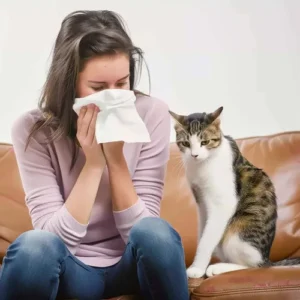In this article, we are going to discuss the different types of eczema, the different symptoms which signify eczema, and how eczema is treated.
Dermatitis, more commonly known as eczema, is a skin condition which will cause your skin to dry out and become very irritable. As a result of the irritability, the skin will get darker and may begin to crack – unfortunately, this a chronic skin condition although there are ways to reduce the affected areas and minimise the impact that it has on your skin’s health.
When to Contact Your GP
Eczema generally shouldn’t be cause for concern. It is a relatively common skin condition which although chronic, can be dealt with very easily. With that in mind, you shouldn’t think of the worst and you should make an appointment with your GP to have them assess whether or not you have eczema. It is important that you have them look at what you suspect is eczema in case it isn’t, and if it is, so that you know how to treat it.
However, there are some rare cases where if the symptoms suddenly worsen or become wide-spread, you should seek medical attention as soon as possible.
Different Types of Eczema
The most common type of eczema is “atopic eczema”, although there are several other types which are all problematic to your skin’s health in their own ways.
Contact Eczema. This type of eczema is triggered whenever your skin comes in contact with specific substances. In a way, this can be thought of as a mild allergic reaction given that if you avoid whatever substances cause the eczema to flare up, you won’t experience it.
Seborrheic Eczema. Seborrheic eczema specifically arises on your nose, ears, eyebrows, and your scalp. While it isn’t as problematic as other types of eczema it can be harder to live with.
Discoid Eczema. Unlike the other types of eczema, discoid eczema doesn’t stick to a specific area and can appear all across your body, making It slightly harder to live with. These patches of skin will appear in circular shapes.
Varicose Eczema. Varicose eczema is a result of inconsistent blood flow in your legs and causes your legs to dry out, thus, leading to eczema.
Dyshidrotic Eczema. Dyshidrotic eczema is the worst kind there is. This causes small blisters to randomly form in the palm of your hands until you have it dealt with. It’s very important that you have a doctor guide you if you suspect dyshidrotic eczema as it can disrupt your day-to-day life and must be treated using an appropriate medication. Dyshidrotic eczema can’t be ignored.
Treating Eczema
While it depends on your specific situation and how your doctor chooses to treat you, eczema is relatively straightforward in terms of treatment.
First, you’ll be taught how to take care of yourself. This might seem patronising at first although you have to be aware of how to properly clean eczema and learn to avoid scratching or rubbing it – by irritating the surface of your skin the eczema will worsen.
You will most likely be prescribed with some sort of cream (emollients) which you will be told to apply once or twice a day, depending on the specific cream. This is usually the treatment which effectively deals with eczema and while it won’t completely eliminate it, creams can help to significantly reduce any dry skin patches.
Lastly, if an emollient has helped to remove some of your eczema but it is still problematic, you will most likely also be prescribed with topical corticosteroids. These are used to relax your skin, leading to a decrease in swelling, a lack of redness, and no more itchiness that you have to engage with.
Common Eczema Triggers
Eczema can flare up for numerous reasons. While the exact causes aren’t fully understood, there are some common triggers you should be aware of:
- Irritants: Certain fabrics like wool, chemicals in soaps or detergents, and even low humidity can irritate the skin and prompt eczema flare-ups. Pay attention to any new products you use and the effect they have.
- Stress: High levels of stress are known to worsen eczema symptoms for many people. Find ways to effectively manage your stress through exercise, meditation, or talking to a therapist.
- Food allergies: Foods like dairy, eggs, nuts, soy, and wheat are frequent culprits for eczema flare-ups in some individuals. An elimination diet can help identify potential food triggers.
- Temperature changes: Extreme hot or cold weather can cause eczema to act up. Using a humidifier and avoiding drastic temperature fluctuations can help prevent flare-ups.
- Hormones: Fluctuations in hormone levels may contribute to eczema for some women, especially during pregnancy or their menstrual cycles.
Being aware of your personal triggers enables you to take preventive steps and avoid potential eczema flare-ups.
Living With Eczema: Tips and Tricks
While there’s no cure for eczema, you can take several proactive steps to better manage symptoms and improve your daily life:
- Moisturize regularly: Keep your skin hydrated by applying a fragrance-free moisturizer at least twice daily, immediately after bathing.
- Take lukewarm baths/showers: Hot water can strip away your skin’s natural oils. Limit baths/showers to 5-10 minutes and use a gentle, fragrance-free cleanser.
- Choose cotton clothing: Fabrics like wool can irritate eczema-prone skin. Opt for soft, breathable cotton materials instead.
- Keep nails trimmed: This prevents scratching from damaging the skin and worsening eczema.
- Use a humidifier: Dry air can trigger eczema flare-ups. A portable humidifier, especially in your bedroom, can help.
- Reduce stress: Find stress-relief methods like exercise, meditation or talking to a therapist. Stress is a major eczema trigger.
- Identify food triggers: If certain foods seem to worsen your eczema, try an elimination diet to pinpoint the culprits.
- Seek support: Connect with others living with eczema through local or online support groups for coping tips.
With patience and proper management techniques, you can gain better control over eczema flare-ups.
Photo “Eczema Girl” by Anthony Cunningham for Zoom Health
Zoom Health is a leading UK supplier of Home Health Tests and Earplugs





